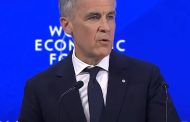By Adagbo Onoja
It is not totally new. Aside from Abiodun Adeniyi at Baze University Abuja, there is Ladi Sandra Adamu, the feminist warrior at the Ahmadu Bello University, Zaria, Prof Sambe at Veritas University, (assuming he is still in the system) and a few others whose names may not click immediately.

Prof Abiodun Adeniyi
Of course, there is Prof Adigun Agbaje. Even if he never tasted professional journalism, he is includable on the list for putting hegemony on the table of media scholarship in Nigeria. It is doubtful if anyone preceded him in doing that in Nigeria. There is Nowa Owens-Ibie too who might have never tasted field reporting but who is also includable on the list. Unlike Adigun Agbaje, Owens-Ibie gets on the list for his 1988 essay “Conflict of Values and the African Mass Media”. As dated as the essay is now, it should still be impossible to teach international broadcasting and Africa without citing the example of the BBC in that essay. In his case, he is not only a professor, he is also a Vice-Chancellor. Now, Major Adeyi and Taye Obateru have joined this list from the University of Jos. The argument here is that the background of field reporting stands out the professorship of Abiodun Adeniyi, Major Adeyi and Taye Obateru, the latest to join the growing club.
In these names, we have academics who are not just professors but who have tasted reporting from the field. The uniqueness there lies in the ethical puzzles which journalists confront on the line of duty. They can make an elder of a 20 year-old overnight. In reporting conflicts in particular, the ethical issues could be mind boggling because a reporter could, in a single report, consciously or otherwise, create a problem such as the rise of a vengeance seeking group but which nobody can trace the origin when it starts manifesting in the society. For this reason, it is interesting to see growth in the number of academics who came into academia through that pathway. I shall return to that dimension shortly.
The second uniqueness here is that this crop of professors are not part of what has become known in Nigeria as professors of practice. Yes, there is that category elsewhere but, like everything Nigerian, it is something else over here. These professors are not your Nigerian professors of practice. They practiced journalism at some point but went on to acquire the required training to make a mid-life career shift from journalism to academia.

Prof Major Adeyi
Prof Abiodun Adeniyi went out of the country to obtain a PhD. So also Taye Obateru who, for sure, obtained at least a Master’s degree in the UK, if not his Phd. At the time they made their own moves, the exchange rate dimension of the Nigerian crisis had not escalated to where it is now. Prof Major Adeyi didn’t go outside the country. At the time he perceptively started veering off to academia, he didn’t need to go outside. The university system was still intact and he had, among his lecturers at the University of Jos, big names such as Isawa Elaigwu, Ali Mazrui, Aaron Gana and very likely Sonni Tyoden. It was a star studded Department of Political Science with back up crew of potential successors. One of them – Prof Sam Egwu – is hibernating at the Independent National Electoral Commission (INEC) but he can only run, he cannot hide. While he is on that assignment, there are those on the same generational scale such as Prof Pam Dung Sha, holding forte. So, the question of the correct grooming for academia is settled in the case of this generation of professors under discussion here.
The folk saying among many ethnic groups in Nigeria asking if a father with sons like these should still be vulnerable to a tiger attack applies here. One tree does not make a forest but no forest is a democracy of trees that we know of. Irokos define many forests and, on two unique grounds sketched above, these more recent professors can enact the Iroko in the forest called the Nigerian university system today, at least where they are located.
Aside from the Department of English or Literature in English, most other departments in Nigerian universities are sick. Miraculously, the Department of English or Literature in English, from Veritas University, Abuja to ABU, Zaria to Ibadan to Federal University, Wukari to just about anywhere, is basically intact. You don’t find the theoretical and methodological decay in other disciplines, especially the social sciences – the worst hit in the decay – in that department.
I have no explanation for that beyond guessing that it must have to do with the fact that the humanities have never been as conquered by positivism as the social sciences and their Enlightenment fairy tales of science, reason, truth and progress. So, aside from historiography, much of the humanities are intact. That is the only reason why the School of African Studies in most of our universities have better grasp of International Relations, for example, than the typical Department of Political Science although this is not unique to Nigeria. It is the story nearly everywhere else, what with all the leading names in decoloniality – a dominant theoretical perspective in international political theory – pioneered by literature guys such as Ngugi, Chinweizu, Onwuchekwa Jemie, Ihechukwu Madubuike or sociolinguists such Anibal Quijano or a semiotician such as Walter Mignolo.

Prof Taye Obateru
So, in a very different sense, the emerging set of professors have another contribution to make: bringing the journalistic to academe. Narrativity couples journalism and the post- modern cant. The ‘posts’ – postmodernism, poststructuralism and deconstruction, postcolonial theory and posthumanism – are not such a welcome family in academia in much of Nigeria. Unfortunately, they have taken over much of the social sciences elsewhere.
The entire International Relations is quaking because of decoloniality. Where is that coming from? As already mentioned, it is coming from structural linguistics, semiotics and literature. Still in International Relations, the sub-discipline has been highly penetrated by post humanists and New Materialists. Most if not all the theorists of New Materialism are coming from Physics, Biology, Geography and Chemistry. Critical geopolitics is a visitor from human and cultural geography. Still in IRs, quantum theory is a new master. Where is it coming from? Physics.
In Mass Communication itself, discourse theory has upended hitherto dominant theories of objectivity and sender – decoder stuff. Where is discourse coming from? It is a combined product of phenomenology, structuralist and poststructuralist linguistics (deconstruction in particular) and (Lacanian) psychoanalysis.
This is part of the reason for the alarm at what the protagonists call unbundling of Mass Communications in Nigeria. The disciplines are fusing at metatheoretical level and some buccaneers are splitting a discipline into its component parts. How does that make sense? Meanwhile, journalism and journalists have emerged as what University of Amsterdam’s Cees Hamelink calls the interpreters of the 21st century who, for that reason, must be thoroughly educated, highly grounded in epistemology and ethnics. It is not for any of us again but the generation ahead? Our forefathers were colonised through hegemony (which was inclusive of brutality) and now our children will stand in intellectual awe of the grandchildren of our colonisers. They will if they miss that grounding.
Unlike some countries where the First degree is not taken as seriously as the graduate programmes (particularly the PhD), the reverse is the case in Nigeria. The first degree in Nigeria makes its holder adequate for many things. The idea of students specialising at the First degree level is, in that context, ridiculous. What they need is solid grounding in epistemology throughout the four/three years of the undergraduate programme, irrespective of the discipline. Those whose head craves for deeper engagement can then go on to graduate studies. Those who do not need more can still get on with life without any handicaps in conceptual and analytical competence or in critical reasoning. When I say critical reasoning, I do not refer to the forced technicist approach being peddled by technicians through the NUC. There can be no critical reasoning training outside theoretical grooming which enables problematization, contextualization, analysis and discussion of the basic facts of any situation and then drawing some conclusions. These are all about philosophy and methodology, not forced training in critical reasoning in the same way someone learns carpentry or tailoring.
Hearty congratulations, therefore, to all members of the emergent professors. Nigeria is reeling in pain but we still celebrate this, bearing in mind that crises are productive of qualitative leaps. Radical contingency will take care of guaranteeing the leaps!




























